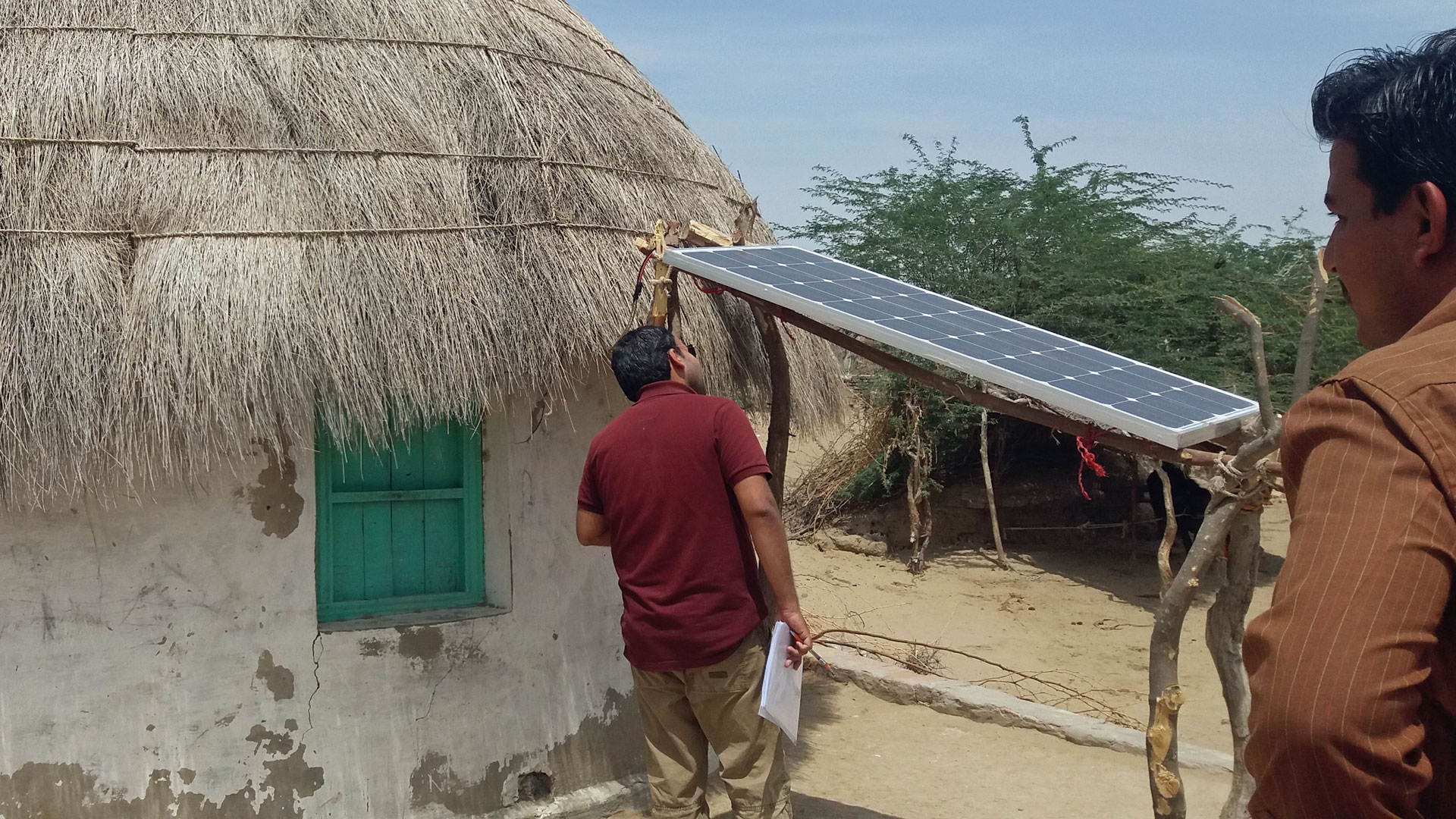Core area “Climate and energy, just transition” Generating power from sustainable sources, preventing disasters, adapting to climate change
With the support of GIZ, solar systems are installed in Sindh, Pakistan.
In 2021, Germany and Pakistan signed an agreement for a Climate and Energy Partnership. This Partnership involves a close political dialogue, efforts to strengthen bilateral development cooperation, and engagement with the private sector, scientific institutions and civil society organisations.
Germany is assisting Pakistan in developing and implementing Nationally Determined Contributions (this support is being provided as part of the NDC Partnership), improving climate risk management, expanding the use of renewable energy, analysing climate risks, developing strategies for adaptation to climate change, and developing an emissions trading system.
Technical and financial solutions
In response to the 2022 flood disaster, the two countries agreed, among other things, to launch a water management programme. In order to prevent floods, rainwater retention basins will be built. This water will be available for irrigation and as drinking water during dry periods.
In order to give people financial protection when a disaster hits, the BMZ is supporting – in addition to technical measures – the development of an adaptive social protection system. Pakistan is one of the Pathfinder Countries for the Global Shield against Climate Risks.
Renewable energy
Pakistan is currently faced with energy shortages, and energy demand will continue to grow in the coming years. It is vital to provide reliable, universal access to sustainably generated energy for the country's economy and growing population.
Pakistan has considerable potential for generating power from renewable sources. Germany is therefore supporting the use of solar, wind and hydropower for electricity generation, as well as the expansion of transmission lines, in order to make it possible to feed this energy into the grid and distribute it.
For example, BMZ funding for five small hydropower stations and solar installations in remote communities in Khyber Pakhtunkhwa Province has enabled 13,000 households to be provided with power from renewable sources. They have been able to reduce their spending on energy by nearly 50 per cent. These measures avoid the emission of 1,600 tonnes of CO₂ equivalent per year.
As at: 07/08/2024

